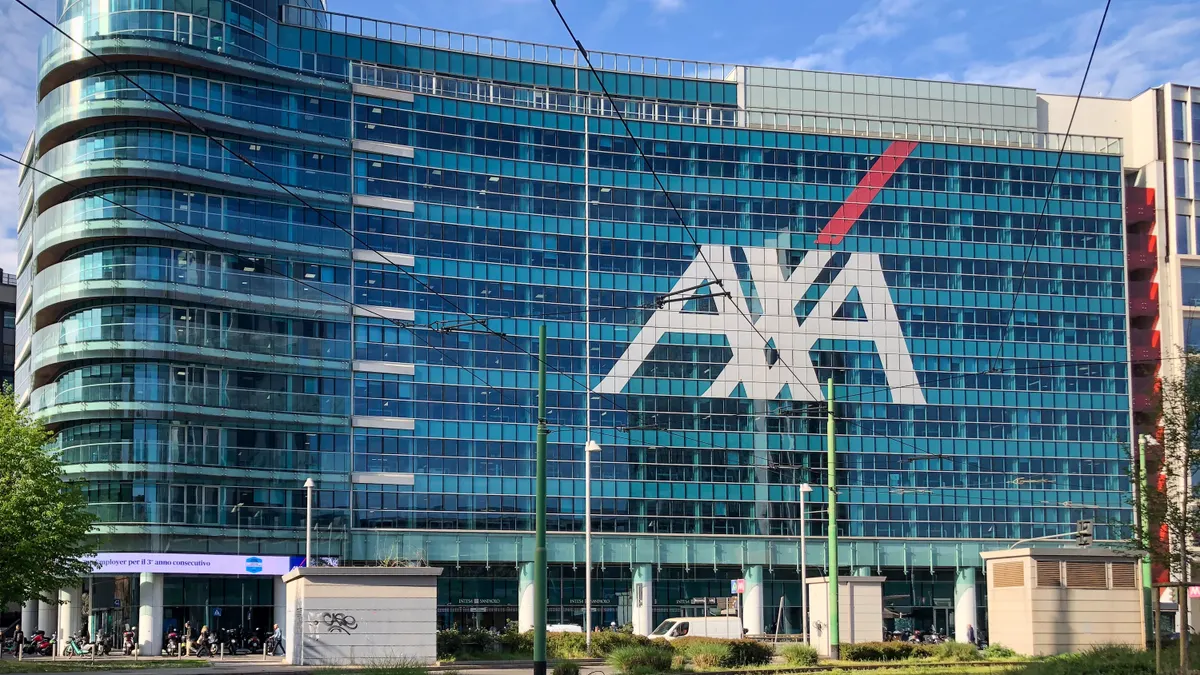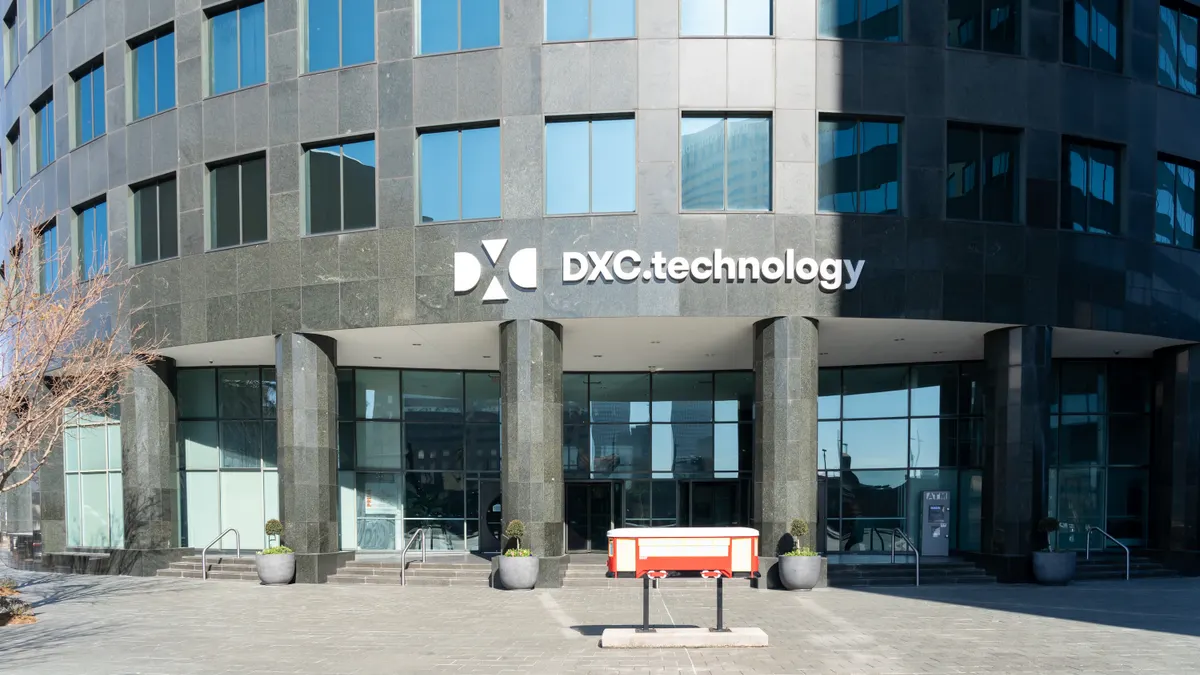Insurers are following the lead of big banks on the path to generative AI adoption, investing in talent, training, research and supporting technologies to move beyond pilots to broader business transformation.
In the race to scale the technology, some firms have already begun to separate themselves from the pack, according to an industrywide survey by Evident.
The benchmarking firm, which has been tracking AI adoption in the financial sector since 2023, analyzed 30 of the largest property, casualty and life insurers in North America and Europe for its inaugural insurance industry AI index. AXA, Allianz, USAA, Intact Financial and Manulife were the industry leaders, based on 76 metrics related to AI talent acquisition and development, research activity, documented use cases and contributions to responsible AI activity, according to the report published June 18.
Evident found early signs of rising generative AI adoption across the inherently risk-averse industry, paralleling developments the firm documented in the financial services sector.
“Insurance companies have the opportunity to automate pretty much everything that they're doing at speed, which is not the case for banks,” Evident Co-CEO Alexandra Mousavizadeh told CIO Dive. “The industry may be more disruptable than banking.”
The road to digital transformation is paved with persistent investments in IT infrastructure, talent and leadership. Emerging technologies take time to evolve and mature into practical applications with tangible business value. Generative AI presents a unique series of challenges, as enterprises grapple with accuracy issues, data privacy concerns and a lack of clear and consistent regulatory boundaries governing its implementation.
Manulife developed an AI pilot playbook long before OpenAI rolled out ChatGPT in November 2023. The company created an advanced analytics team in 2016 to test potential use cases, Manulife Global Chief AI Officer Jodie Wallis said Tuesday, during an Evident roundtable event.
“Most of what we did in those early days was around more intelligent lead generation and optimizing pricing in some of the businesses where that made sense,” Wallis said. “We did some very preliminary work around automating underwriting for low face value policies.”
As predictive AI proof-of-concepts proliferated, Manulife entered the second phase of its adoption curve, investing in underlying data platforms and infrastructure. But the firm was initially wary of generative AI.
“The third phase started happening in 2023 and we weren't that quick,” said Wallis. “When ChatGPT came on the scene in 2022 it took us until about the first quarter of 2023 to pull a strategy together and start working on Gen AI.”
The Manulife generative AI gameplan followed a course charted in prior years with machine learning, according to Wallis.
“We started with proof of concept,” Wallis said. “Let's convince people that this is real. Let's get the business starting to use some basic tools so they understand what's happening here, and then really transition to thinking about Gen AI as a scale play.”
The company rolled out a proprietary generative AI assistant called ChatMFC last year. As of March, 75% of Manulife’s global workforce were actively using the tool.
“We’ve integrated AI into the heart of our operations across the globe, and are delivering meaningful impact through responsible, practical AI deployments that drive results our customers and colleagues can feel.” Wallis said in a Monday release detailing the Evident findings.
Safety first
One of the major hurdles facing insurers with the adoption of generative AI — or any other technology that puts protected data at risk — is regulatory compliance. The legal and ethical bar is set particularly high in the life insurance industry, where agents and underwriters regularly review medical records and other personal information subject to strict controls.
“Life insurance is a long-duration, low-frequency business and it's deeply personal,” Wallis said during the roundtable. “There are massive restrictions on the data that we can use to do a lot of the things that we do.”
Property and casualty insurers have a less onerous regulatory burden and have been faster to adopt generative AI, according to Evident’s research. The top four performers in the insurance index — AXA, Allianz, USAA and Intact Financial — primarily provide property and casualty insurance along with other financial services.
AXA was quick to embrace ChatGPT, according to Andreas Schertzinger, who joined the insurer as group chief data, AI and innovation officer in July 2024. The company deployed its proprietary AXA Secure GPT tool in July 2023, drawing on in-house engineers working in partnership with Microsoft to roll out the assistant to its 140,000 employees.
AXA now boasts roughly 400 use cases for predictive, generative and agentic AI. in various states of production, Schertzinger said during the Evident panel.
“The benefits are very different,” said Schertzinger. “Some lead to growth and customer experience. We have improved technical excellence, and there's also operational efficiency.”
The pace of adoption has picked up across the industry.
The Hartford reshuffled its tech leadership team to prioritize AI in March. Last year, American International Group turned to generative AI to improve its underwriting processes and Travelers opened an AI innovation hub in Atlanta after eight years of focused IT modernization.
“We have focused on responsibly developing differentiating AI capabilities across our three innovation priorities: extending our lead in risk expertise; providing great experiences for our customers, agents, brokers and employees; and optimizing productivity and efficiency.” Travelers’ Chairman and CEO Alan Schnitzer said in March, in the company’s 2024 shareholders report.
Liberty Mutual leaned on OpenAI’s models to roll out the LibertyGPT chatbot to its 45,000 employees last year, as well.
“Insurance was an initial use case for predictive analytics,” Giancarlo Hirsch, managing director at tech talent recruitment agency Glocomms, told CIO Dive. “It’s the same business that Warren Buffett bought into four decades ago, but with a huge amount of new data coming in different ways that you have to manage and apply to the different types of models and techniques.”
Hirsch and Ben Hodzic, who is managing director at financial services recruitment agency Selby Jennings, have seen a noticeable uptick in insurance industry demand for data scientists and AI engineers and executives.
“Companies are interested in generative AI, large language models, building chatbots and finding different ways to make life more efficient for their workers,” Hodzic said.
Tech executives are also looking across the enterprise to bring AI know-how to non-technical staff.
“I don't think the talent development question going forward is going to be so much about: How are we training our data scientists and our AI engineers?” according to Wallis. “It's going to be: How are we training everybody in the organization to understand, adopt and embrace AI?”
























